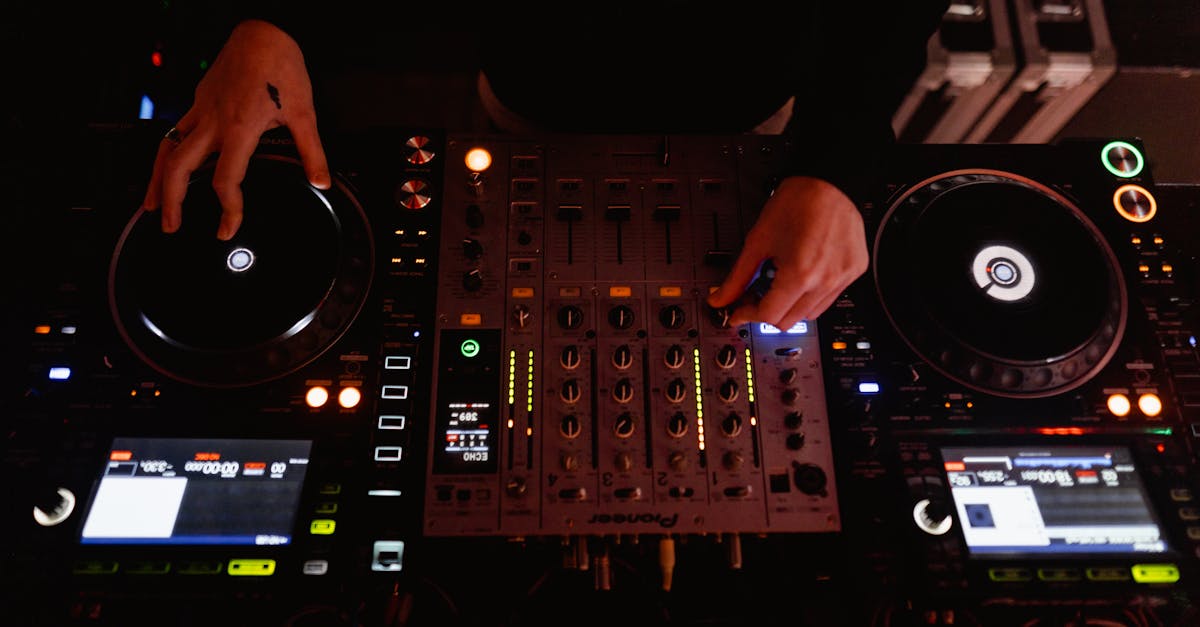Universal Tunes Exploring Earths Melodies
Introduction
Music transcends borders, embodying global cultures and emotions. Throughout history, different cultures have created unique soundscapes, each resonating with tradition and identity. These diverse melodies compose what can only be described as Earth’s universal tune—a harmonious blend of beats and rhythms echoing across continents. Each culture's music reflects its socio-political history and offers insight into its people’s emotions, struggles, and aspirations. The world’s musical diversity enriches our shared cultural heritage and offers unifying experiences despite geographical distances. Our journey begins with the exploration of these sounds and their profound impact on our collective human experience.
Advertisement
Music as a Cultural Identifier
Music serves as a powerful cultural identifier, encapsulating the essence of communities and nations. Traditional music styles, such as Flamenco in Spain and the intricate Ragas of India, truly manifest their cultural roots and local stories. These sounds are not just entertainment; they are the heartbeat of festivals, rituals, and everyday life, bonding society. While the specifics differ vastly—instruments, scales, and rhythms—the universal language of music speaks to human experience. Traditions like African drum circles or Indigenous Australian didgeridoo playing reveal spirituality, history, and social cohesion. As cultures evolve and interact, so does their music, absorbing new influences and adapting to fresh rhythms.
Advertisement
The Influence of Geography and Environment
The soundscapes we create are often shaped by the environments in which we live. Geographical elements such as mountains, rivers, forests, and even urban landscapes play a significant role in molding regional music. Take, for example, the Bagpipes echoing in foggy Scottish highlands or Calypso rhythms inspired by the warm, vibrant Caribbean beaches. Nature's sounds—from the rustling of leaves to the crashing of ocean waves—intertwine with mankind's musical expressions, creating symphonies unique to their locale. The environment, while initially a silent observer, becomes an active participant in creating a community’s sonic heritage, shaping the instruments, tones, and techniques used.
Advertisement
Technological Impact on Music Creation
Technology's evolution has revolutionized how music is created and shared worldwide; music once bound by locale now skips effortlessly across continents. The introduction of electronic instruments and digital production has unleashed a torrent of creativity and fusion. Genres like EDM (Electronic Dance Music) have emerged, drawing from global influences to captivate audiences globally. Online streaming platforms break geographical barriers, offering access to endless music libraries from every corner of the globe. Social media fosters connection and collaboration, as artists merge traditional elements with modern sounds, birthing genres like Afrobeat that blend African rhythms with international pop. Despite technological advancements, the soul of these universal melodies remains rooted in tradition.
Advertisement
The Emotional Connection Music Provides
Across cultures, music evokes complex emotions, making it both a personal and global storyteller. Songs of joy, love, struggle, and hope resonate universally, enabling listeners to connect with societies far removed from their own. Whether through the poignant ballads of Fado, capturing Portuguese longing, or the meditative chants of Tibetan monks, music bridges emotional gaps. It provides a comforting constant through challenging times, a rallying cry in moments of change, and a soundtrack to life's pivotal moments. Music’s innate ability to evoke empathy and understanding across languages and traditions plays a crucial role in promoting global harmony.
Advertisement
The Role of Festivals and Gatherings
Musical festivals are potent reminders of music's power to unite people, transcending boundaries and differences. Worldwide, events like Rio's Carnival, India’s Diwali festival, and America’s Woodstock celebrate shared joy and cultural exchange. These gatherings showcase traditional melodies and contemporary hits, often featuring collaborations that highlight the diversity of global instrumentation and techniques. Festival music often spills into the streets, turning cities into pulsating hubs of sound, light, and color—where music becomes a physical space rather than just an auditory experience. These events foster cultural pride, artistic expression, and collective experiences that unify their audiences and accentuate the universal language of music.
Advertisement
The Future of Global Musical Trends
The future of music promises heightened globalization, leveraging common threads to formulate fresh narratives, styles, and genres. Fast-paced technological innovations like AI-driven compositions and immersive experiences through VR and AR are reshaping the musical landscape. Edging into the spotlight are musicians who embrace sustainability, reviving traditional methods while promoting ecological causes. As global societies garner empowerment through online communities, niche genres can flourish, gaining international recognition. Yet, the foundation of future trends will remain tethered to the rich past of musical traditions, blending the new with the old to form sounds that are uniquely universal and richly diversified.
Advertisement
Challenges of Music's Universalization
Despite its unifying power, music's globalization faces challenges. The music industry must balance preserving traditional sounds against a backdrop of increasing global influences and commercialization. As diverse sounds merge to appeal to broader audiences, distinct musical identities risk being overshadowed by mass-market popularity. Advocates strive to ensure fair representation and recognition for indigenous musicians, protecting cultural heritages and preventing cultural appropriation. Artists are challenged to innovate while maintaining authenticity, striving to share their traditions without diluting their cultural essence. In an age where everyone can listen to everything, protecting diversity and heritage has never been more critical.
Advertisement
Acknowledging Music's Ethereal Power
Every beat and melody tells a story that transcends language, weaving tales of joy, sorrow, resistance, and unity. Music rejuvenates the spirit, calming where words fail and healing wounds unseen. As societies evolve, they will continue to innovate within this universal framework, leveraging musical heritage to imagine new frontiers of sound exploration. The diversity and richness of global sounds remind humanity of the invisible thread connecting us all, despite differences. In the symphony of life, music holds a special power, echoing timeless truths while championing adaptability and resilience.
Advertisement
Conclusion
Earth’s melodies offer listeners a portal to the world’s cultural heart, a connection beyond what simple conversation allows. This sonic journey enriches our human experience, transporting emotions and stories across vast distances. As these universal tunes transcend boundaries, they encapsulate who we were, who we are, and who we aspire to be. The challenges that accompany music's evolution ensure its dynamism, continually breathing life into our global concert hall. While harmonizing with new traditions and forms, music remains a testament to human ingenuity, a common language inviting us all to listen, dance, and unite.
Advertisement







